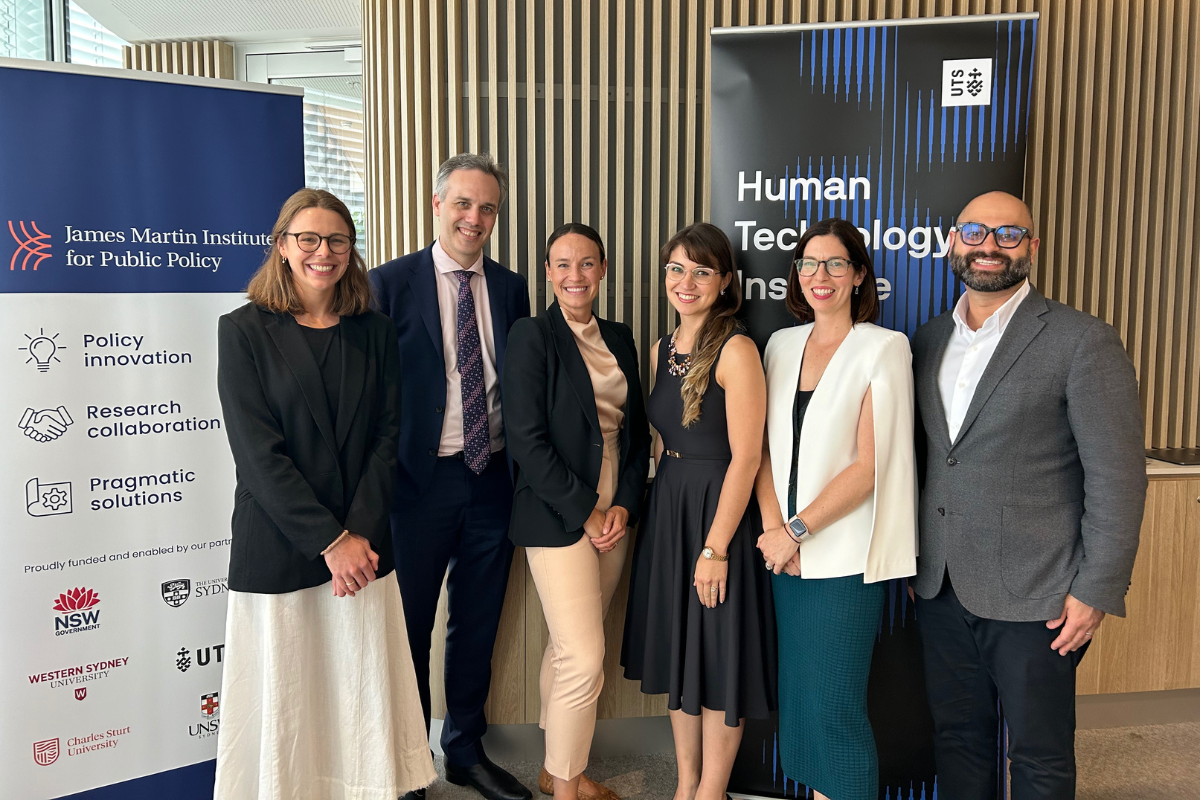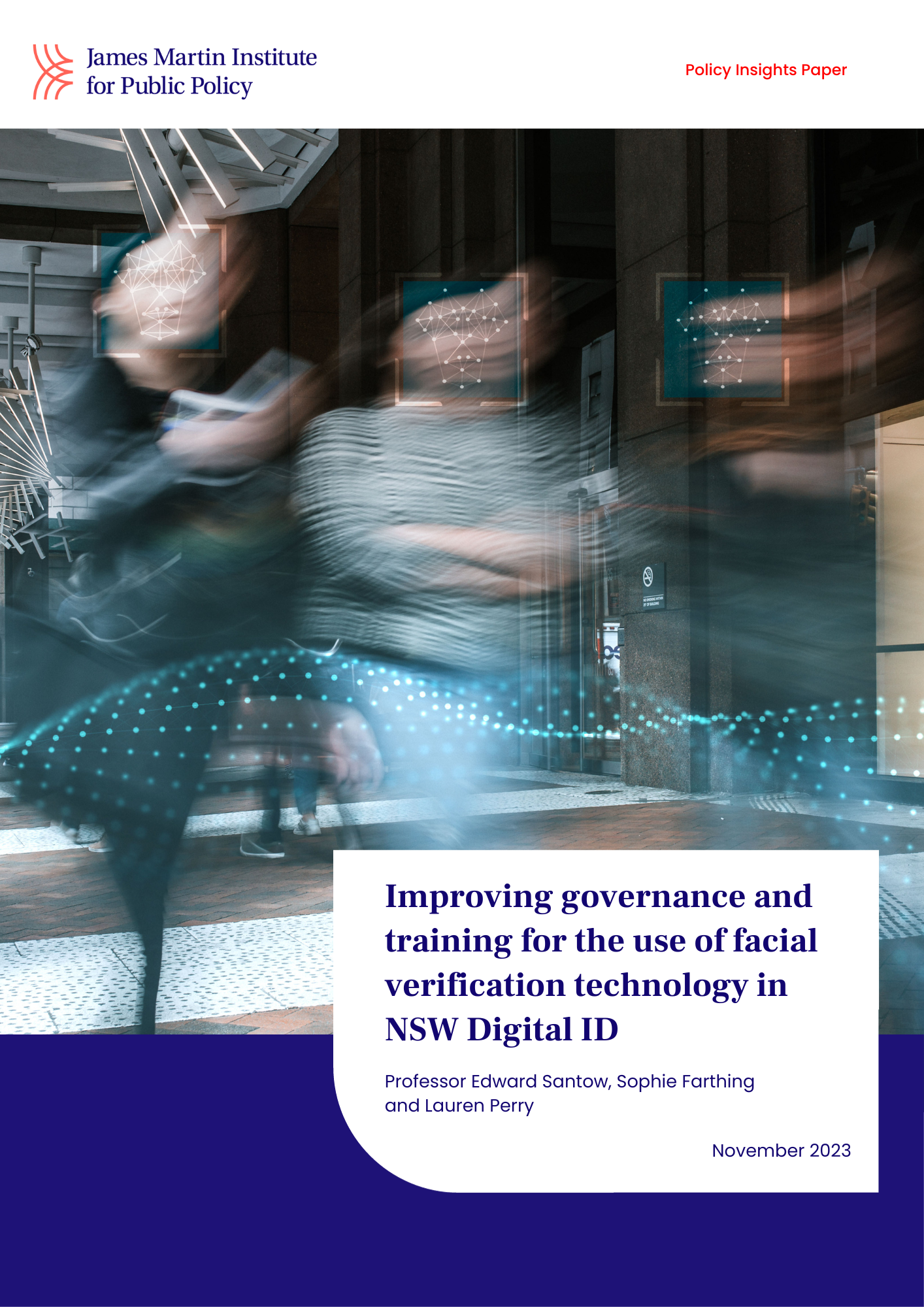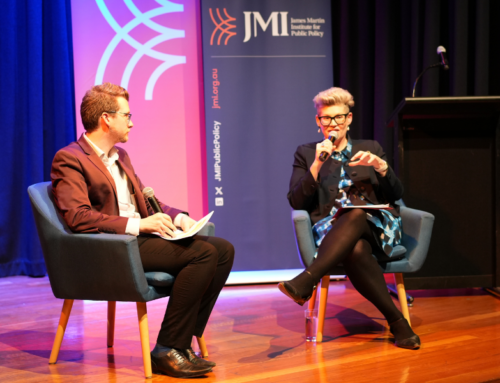Today, the James Martin Institute for Public Policy (JMI) has launched “Improving governance and training for the use of facial verification technology in NSW Digital ID”, a report authored by Professor Edward Santow, Sophie Farthing and Lauren Perry from the UTS Human Technology Institute (HTI).
With the backing of a JMI Policy Challenge Grant in 2022, the HTI team led by Professor Ed Santow developed a governance framework and training strategy to support Service NSW in rolling out a safe, reliable and responsible Digital ID system.
NSW has been leading the way in the digital transformation of government services. In April 2022, the NSW Government committed to establishing a Digital ID for the people of NSW.
Minister for Customer Service and Digital Government Jihad Dib said security and privacy considerations are central to the new technology being developed and input from the UTS work can further enhance the way these services are delivered.
“As our work evolves there is great value in having an open conversation with leading experts about the way we deliver this technology to help communities understand the value and assure them of the steps we are taking to build trust in the community around Government services and digital ID initiatives,” said Minister Dib.
Digital identity promises convenience and better privacy protections for individuals, and greater efficiency and cybersecurity for government and business. The report shows that these opportunities can be grasped, but only if the risks associated with digital identity are well understood and addressed.
NSW’s Digital ID system will use facial verification and liveness detection technologies to enable individuals to prove who they say they are.
“These technologies can pose risks for human rights, such as privacy and non-discrimination, and these risks need to be well managed through good system design, strong legal protections and effective training,” said Professor Santow.
“The NSW Government’s Digital ID initiative is groundbreaking, because it seeks to ‘bake in’ protections that make the system more robust, while simultaneously building public trust,” Santow said.

In November, the team held a roundtable to share experiences and best practices with government colleagues from other Australian jurisdictions as well as private sector representatives. This peer-to-peer discussion showcased the effective collaborative approach taken between HTI and Service NSW.
The CEO of JMI, Libby Hackett, said the project’s direct and practical impact on a specific area of public policy is a testament to the unique nature and ambition of the JMI Policy Challenge Grants. Six grants were awarded in 2022, and seven more in 2023 to respond to some of the most pressing policy challenges in NSW and beyond, supporting research teams to engage with policymakers and government to maximise impact. “We hope this groundbreaking project will serve as a catalyst for similar initiatives in other jurisdictions in Australia and beyond,” she said.
The report will be featured at the NSW Future of AI Summit on 18 December, where Professor Santow will speak on digital identity alongside Lenka Bradovkova, Executive Director, Digital Identity, Digital.NSW.
This report is also timely in the national context, with the recent introduction of two major digital identity related bills before the Australian Parliament: the Identity Verification Services Bill and the Digital ID Bill 2023.








